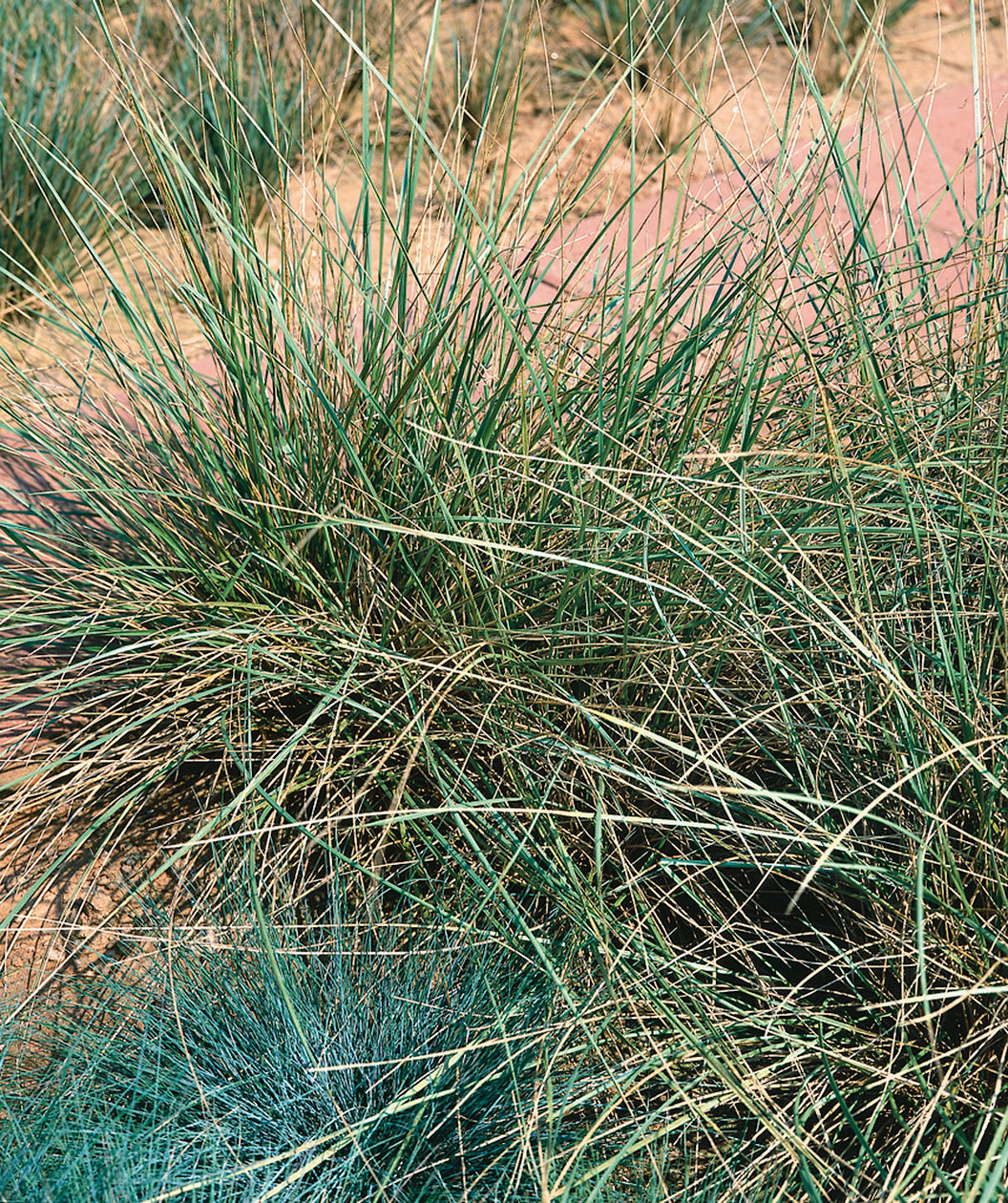FOUNTAINS OF TALL FLOWING GRASS ADD ORNAMENTAL VALUE IN ANY LOCATION
FEATURES:
- Late spring blooms are small but add just a tad more interest
- Light green foliage flows gently in the wind, adding texture and depth to any garden
- Tolerant of heat and drought, low maintenance
- Adaptable in most soils and capable of growing in containers
- Great for erosion control planted in beds or borders, and makes for a great ground cover
-
Hand Selected, Fresh from the Grower
- Ships in a plant-safe designed box
Photo Credit: ©Nova-Photo-Graphik GmbH® Atlas Fescue
Growth Facts
- Hardiness Zone: 4-9
- Mature Height: 2-3' tall
- Mature Width: 2-3' wide
- Exposure: Full Sun
- Spacing: 24-36" apart
FOUNTAINS OF TALL FLOWING GRASS ADD ORNAMENTAL VALUE IN ANY LOCATION
FEATURES:
- Late spring blooms are small but add just a tad more interest
- Light green foliage flows gently in the wind, adding texture and depth to any garden
- Tolerant of heat and drought, low maintenance
- Adaptable in most soils and capable of growing in containers
- Great for erosion control planted in beds or borders, and makes for a great ground cover
-
Hand Selected, Fresh from the Grower
- Ships in a plant-safe designed box
Photo Credit: ©Nova-Photo-Graphik GmbH® Atlas Fescue
Growth Facts
- Hardiness Zone: 4-9
- Mature Height: 2-3' tall
- Mature Width: 2-3' wide
- Exposure: Full Sun
- Spacing: 24-36" apart
Why plant Atlas Fescue?
The Atlas Fescue is a dense perennial grass that, when grown in climates that offer warmer winters, takes on evergreen tendencies. This grass provides light green foliage that reaches heights of about 3’ and spans 2-3’ wide, adding intriguing interest and movement to any garden space. Adaptable in many situations, be it soil, light, or location, the Atlas Fescue offers minimal maintenance requirements making this grass a must have. The Atlas Fescue is not native to the Americas but to the Atlas Mountains of Morocco, which is how the common name Atlas came to be!
How to use Atlas Fescue in the landscape?
If you have been looking to fill in some void spots in your garden with a plant that adds unique structure, then I beg you to consider the Atlas Fescue. This clumping grass provides a fountain of texture to any property, grown either in the ground or container, this grass aims to please! Drought and heat tolerant while having the characteristics of an evergreen in warmer winter climates, this grass does well in borders, beds, or utilized as a ground cover. Their low maintenance attitude will allow you to enjoy a beautiful landscape without the hassle and hard work.
Planting Zones
Hardiness Zone: 4-9
How To Plant Atlas Fescue
The Atlas Fescue grass enjoys locations that provide full sun, however it is capable of growing just fine in partial shade. Loving locations that provide well draining soil, the Atlas Fescue grows in chalk, loam, or even sandy locations with ease.
How To Water
After planting, we recommend watering at least twice a week until the plant is established. Once settled into place, you may decrease the amount of watering taking place. However, even with a tolerance to drought, this grass will still enjoy some water during those hotter months. We also advise keeping an eye on your local weather and watering accordingly during periods of inclement weather such as high heat and drought. This will ensure a long and healthy life for your Atlas Fescue.
How To Fertilize
At the time of planting, we recommend applying fertilizer to the planting site. If you planted your perennial in the spring, the following application for feeding should take place in fall. If planting in the fall, the following spring will be the time to reapply your fertilizer. Maintain this process for the life of the plant and enjoy happy and healthy growth.
How To Prune
The Atlas Fescue does not require any pruning, unless you would like to manage the size or shape. In warmer climates, this grass is considered evergreen. If you live in colder climates where the Atlas Fescue will experience dormancy, you will want to prune away the dead grass just about the ground to make way for the new growth.





